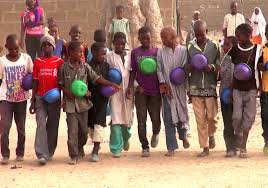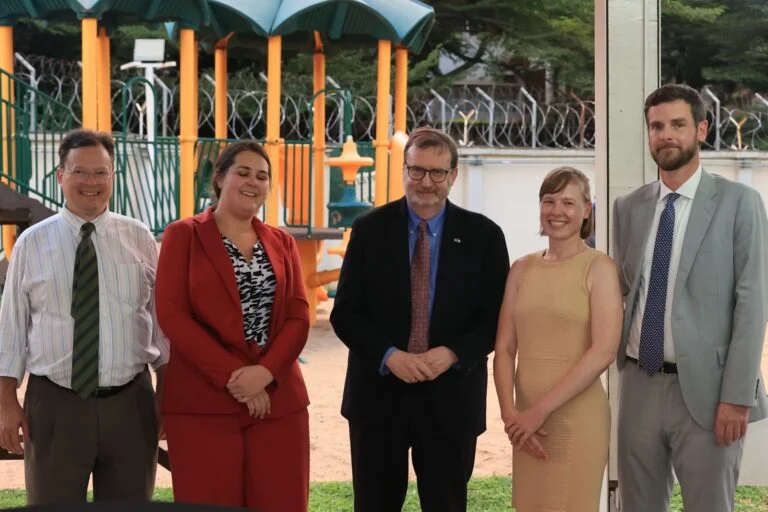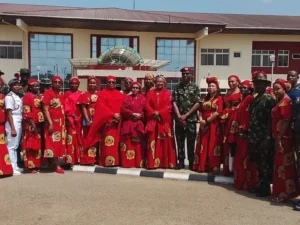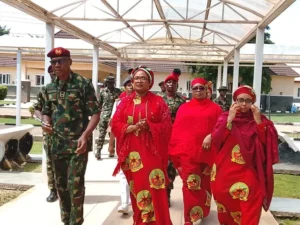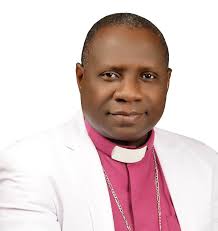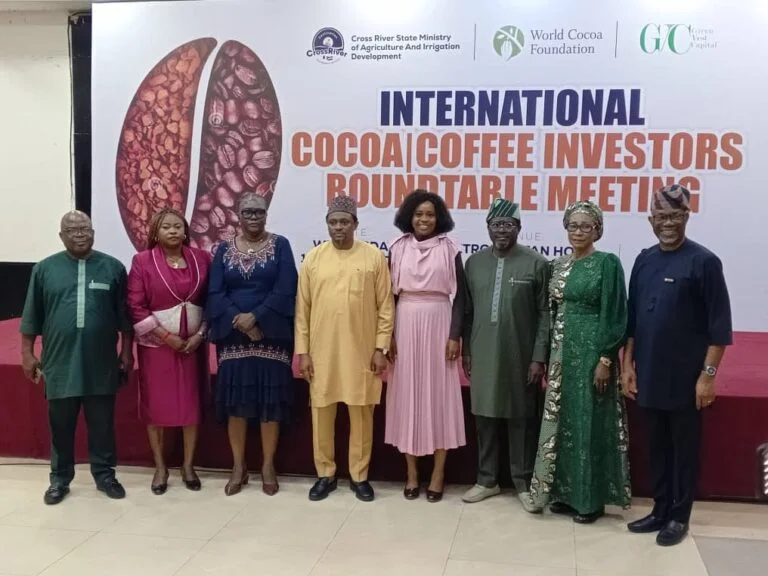Stakeholders advocate stricter child protection measures in North-East
By Reporters
Stakeholders in the North-East have stressed the need for stronger and sustained efforts to safeguard children’s rights, eliminating all forms of abuse and exploitation.
The stakeholders spoke with correspondents of the News Agency of Nigeria (NAN) in a survey on challenges faced by children, such as child abuse and exploitation.
The survey was in commemoration of the International Day of Innocent Children Victims of Aggression, observed globally on June 4 every year.
The day is aimed at raising awareness about the impact of conflict and violence on children and promoting their welfare.
Experts in the region stressed the need for sustained action to address child labour, abuse and neglect across their states.
Mr Joel Jatum, a public affairs analyst and education consultant in Adamawa, said the day is an important reminder to prioritise the rights and welfare of children, especially those affected by conflict and poverty.
“June 4 is set aside to recognise the plight of children.
“However, here in Adamawa, the commemoration was low-key, reflecting limited government and partner efforts in supporting children affected by crises and those living on the streets,” he said.
Jatum said although the Child Rights Act had been domesticated in Adamawa, implementation remained weak due to limited funding, poor political will, and weak enforcement mechanisms.
“There are laws protecting children, including against gender-based abuse.
“But enforcement is lacking because we still see children roaming the streets without access to education, shelter, or basic rights outlined by the United Nations.
“Many face hunger and malnutrition, and the response is often limited to symbolic gestures during commemorative days,” he said.
He emphasised the need for permanent institutions to support unaccompanied children, including those in Internally Displaced Persons (IDP) camps.
He warned that the absence of sustained care risked pushing the children into negative societal pressures.
“Poverty is the root cause, and until it is addressed holistically, these challenges will persist.
“We must invest in infrastructure, enforce existing laws, and mobilise sustainable funding to provide children with quality education and the care they deserve,” Jatum added.
Also speaking, Ms Lauriya Yusuf, a child rights activist with Pearls and Wellbeing Foundation, commended government efforts but described them as inadequate.
“We still see children hawking on highways, begging, or working in dangerous environments, and these situations clearly violate the Child Rights Act and the Labour Act,” she said.
She called for more rescue operations, prosecution of offenders, and sustained public awareness campaigns.
According to her, there must be a collective effort by the government, community leaders, and citizens to uphold the rights and welfare of every child.
The Adamawa State Commissioner for Women Affairs and Social Development, Mrs Geoffrey Neido, reiterated the state government’s commitment to enforcing child protection laws.
She recalled that the Child Protection Law was signed into law in 2022 to safeguard children across the state.
“The law guarantees protection for all children, and we urge citizens to respect and comply with it.
“The ministry’s vision is to tackle child molestation, gender-based violence, and promote the well-being of all children in Adamawa,” she said.
Neido described Gov. Ahmadu Fintiri as a child-friendly leader.
She highlighted the governor’s administration’s efforts, including the declaration of free education and payment of examination fees for secondary school students.
Speaking on the prosecution of perpetrators, Neido said Fintiri was always committed to the well-being of children and made their welfare a priority in all government decisions.
The commissioner said the Fintiri-led administration had shown strong support for the rights of women and girls by passing the Violence Against Persons Prohibition (VAPP) Act and the Child Rights Act.
“These laws led to the creation of mobile courts that can quickly handle cases of gender-based violence and other related crimes,” she said.
Neido said the laws were helping women speak out, break the culture of silence, and protect children by putting an end to child marriage and child labour.
However, stakeholders in Borno said prosecution of violators of children’s rights remained rare.
They argued that the state and the federal institutions must move beyond legislation to full-scale implementation and accountability.
Hauwa Abubakar, Borno Attorney General and Commissioner for Justice, said the state was shifting away from conventional court processes in handling juvenile justice.
“We in the justice sector are not too keen about courts when it comes to our children.
“Our discussions with the Chief Judge of Borno State have focused on the creation of family courts and the rehabilitation of our children, especially those affected by insurgency,” she said.
Abubakar also said the welfare of children remained central to the state’s judicial reforms.
“We are prioritising alternative dispute resolution, protection, and family support to ensure no child in Borno State is left behind,” the commissioner said.
She reaffirmed the government’s pledge to fully implement the Borno Child Protection Law 2021, which provides legal safeguards for children against violence, abuse, child labour, abduction, and exploitation.
Mrs Rukaiya Goni, the Director of Child Welfare at the state’s Ministry of Women Affairs, said the ministry had stepped up efforts to remove children from the streets and reintegrate them into safe learning environments.
“In the first quarter of 2025 alone, we rescued and rehabilitated over 300 street children within Maiduguri and Jere.
“Some of them were victims of insurgency, others were orphans or abandoned,” she said.
According to her, these children are enrolled in non-formal education centres and vocational training programmes, supported by UNICEF and Save the Children.
“Despite our progress, the biggest hurdle is societal.
“Some parents force children into hawking or begging under the guise of poverty.
“That is why we are also intensifying community awareness campaigns on child rights,” Goni added.
Mr Mohammed Musa, a Child Protection Officer at Citizen Initiatives for Security Awareness, however, expressed concern over the low number of prosecutions for child rights violations in Borno and other northern states.
“The Child Protection Law of 2021 is robust, but its enforcement is weak. We’re yet to see regular and consistent prosecution of individuals who exploit children,” he said.
Musa said that CISA is currently training law enforcement officers, prosecutors, and judges in Borno on child-sensitive legal processes to improve accountability and child protection outcomes.
“Children in Borno have suffered the trauma of war, loss of parents, and forced displacement. Implementing the law is not enough — we need to ensure offenders are brought to justice and survivors are given care,” he said.
A senior official from the Federal Ministry of Labour and Employment, Mr Aliyu Bello, said only two formal prosecutions for child labour violations occurred in Borno in 2024.
“In Jere Local Government Area, two individuals were convicted for employing children in manual construction and quarry work.
“They were fined, and the children were handed over to the State Ministry of Women Affairs,” he said.
Bello acknowledged the need for increased field surveillance, more reporting by the public, and collaboration with local authorities to track offenders.
“Many families justify using children for economic activities. We need a combination of enforcement and welfare programmes to tackle this at the root,” he noted.
The Executive Director of Transformative for Children Initiative, Mrs Martha Dauda, said civil society groups welcomed the state’s legal reforms but remained concerned about the disconnect between laws and realities.
“Every day you walk down major roads in Maiduguri and see 10-year-olds hawking water or working as porters.
These are violations of the law,” she said.
According to her, reports of child abuse and exploitation rarely reach the courts due to cultural stigma, poor reporting structures, and insufficient legal aid services.
“We need mobile child protection courts, more shelters for at-risk children, and public sensitisation campaigns.
“The state has shown political will we now need institutional action,” Dauda added.
The child protection law was fully in force in Yobe.
Mr Saleh Samanja, the state’s Commissioner for Justice and Attorney-General, said the state had domesticated the Child Rights Act 2003.
“After a wide consultation with critical stakeholders, the governor signed the law, which marked a turning point in the state’s commitment to the rights and welfare of children.
“The law addresses critical issues such as child marriage, child labour, trafficking, and access to education and healthcare,” he said.
Similarly, the state’s Commissioner for Women Affairs, Hajiya Yajalo Badama, said though no arrest was recorded recently for violation of the law, the ministry had intensified awareness campaign on the need to treat children with care.
“We are committed to the implementation of the Child Protection Law. Anyone found wanting will face the wrath of the law.
“As we speak, child protection desks have been established in all the 17 local government areas of the state to handle reports of abuse and refer victims for care and legal redress.
“Through a partnership with UNICEF, we have trained child protection officers and social welfare workers to ensure proper case management and community-level engagement,” she said.
Badama said the ministry was working with school authorities and local vigilante groups to identify vulnerable children and respond to protection concerns swiftly.
Meanwhile, the Emir of Fika, Chairman of the Yobe Council of Chiefs, Alhaji Muhammadu Idrissa, said the council had issued directives, encouraging the protection of children’s rights in line with Islamic values and cultural norms.
“We are working closely with the government and religious scholars to educate our people and ensure no child is denied their right to education, health, and safety,” the emir said. (NAN)(www.nannews.ng)
Edited by Abdullahi Mohammed




